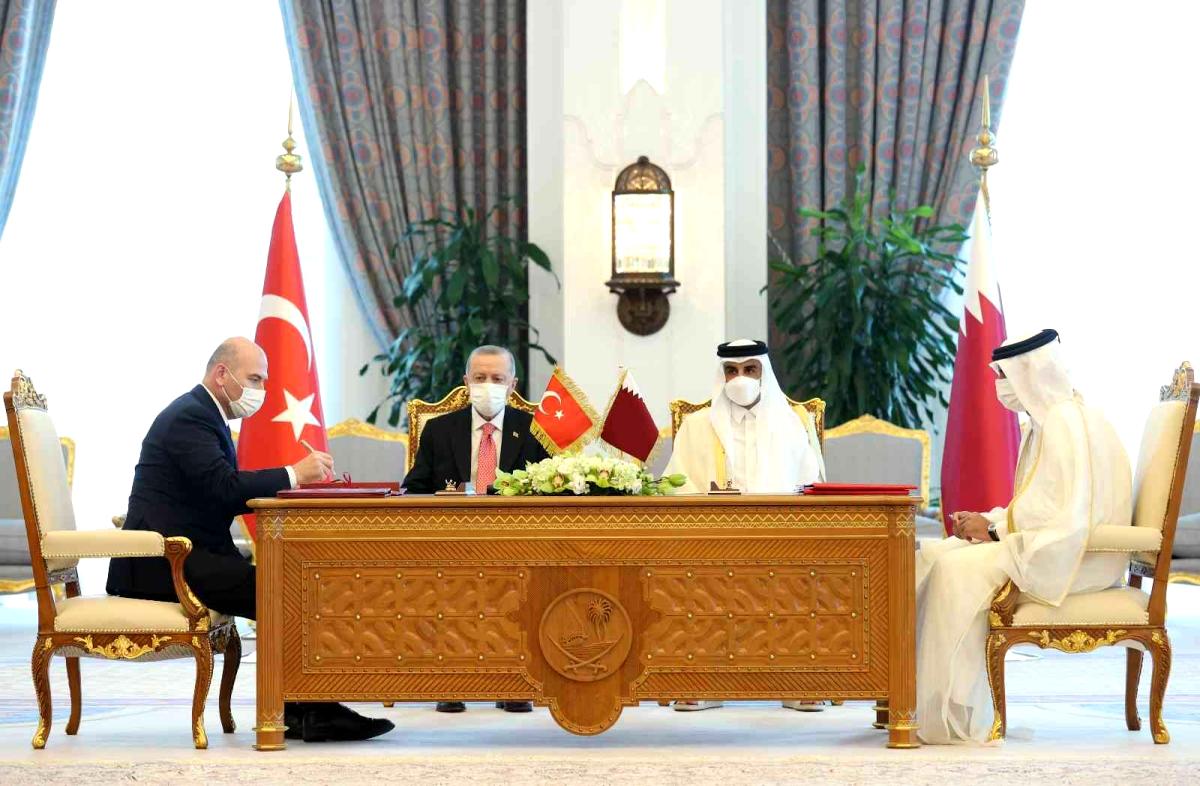Levent Kenez/Stockholm
According to a security protocol signed on December 7, 2021 and obtained by Nordic Monitor, Turkey will send a police force of 3,250 officers to Qatar, including members of the notorious special operations unit, during the FIFA World Cup to be held in November-December 2022. Turkey will not be responsible for damages or compensation arising out of the actions of the Turkish National Police, known for its disproportionate use of force at public events.
It was first revealed in 2019 that Turkey would send a police force to Qatar during the 2022 World Cup, with Turkey and Qatar signing a security protocol. The protocol, titled “Letter of Intent on Cooperation in Mega Event Implementation,” was signed by Turkish Deputy Interior Minister Muhterem Ince and Brig. Gen. Ibrahim Khalil Al-Mohannadi, head of the Legal Affairs and Communication Unit in the Security and Safety Operations Committee of FIFA World Cup 2022, on October 31, 2019, in Ankara during the visit of Qatari Prime Minister Abdullah bin Nasser bin Khalifa al-Thani.
After the protocol was ratified by the Turkish Parliament, a new protocol with concrete details was signed during a visit by President Recep Tayyip Erdoğan to Doha on December 7, 2021. According to the new protocol, the Turkish police force will include 3,000 riot police who will be ready to intervene in possible demonstrations or fights between fans as well as 100 members of the special operations unit, advisors and a general coordinator in charge of the force.
According to the agreement, all transportation, accommodation and other expenses of the police officers to be deployed to Qatar will be covered by the host country. In addition, sim cards and Internet packages will be allocated to the policemen. Turkey requested that all personnel stay in the same place if possible.
The Turkish side will also assist Qataris in preventing possible terrorist bombings. In addition to bomb experts, 50 bomb-detection dogs and their handlers will accompany the force. The Turkish police have a total of 132 bomb-detection dogs, almost half of which will be assigned to the World Cup.

Interior Minister Süleyman Soylu announced this week that the Turkish police have also trained 677 Qatari police officers for the World Cup. Qatar had sought foreign assistance simply because the number of police officers in Qatar is not adequate to handle the large crowds. Due to difficulties Qatar experienced with neighboring Arab countries in the past, it turned to its ally Turkey for help. Qatar and Turkey have been in close cooperation in recent years. Turkish opposition circles claim that Turkish President Erdoğan and Emir Tamim bin Hamad Al Thani are business partners. Critics frequently allege that the real owners of the factories and companies in Turkey that Qatari businessmen have recently bought are the Erdoğan family.
During the parliamentary debate over the first protocol, opposition lawmakers criticized the use of the Turkish police as “mercenaries,” rejecting any experience on the part of the Turkish police, which was stated as one of the reasons for the protocol, given the fact that Turkey is not hosting a major sports event.
The Turkish police are frequently criticized by human rights defenders for the disproportionate force they use at demonstrations. It is a matter of curiosity how the police, who don’t hesitate to use violence against football hooligans at home, will intervene with international hooligans. Experts claim that the Turkish police will act carefully so as not to provoke an international backlash and damage good relations with Qatar.
The special operations unit, which is part of the police force going to Qatar, is widely used in counterterrorism operations in Turkey. Consisting mainly of nationalist policemen, the unit is criticized for human rights violations, especially in areas heavily populated by Kurds.
According to the agreement, the Turkish police will not be responsible for any damages they may cause or any compensation arising out of their actions. President Erdoğan, in the rationale for the agreement he sent to parliament for ratification, stated that the Turkish police will be on duty in Qatar, which will be an opportunity for them to show their experience in the international arena. The protocol is expected to receive parliamentary approval in the near future.
Nordic Monitor previously revealed the Turkish government’s plans to augment its military base in Qatar with naval and air assets in addition to land troops, expanding what started off as a small base into a joint force headquarters. According to the document, the Turkish military force at its base in Qatar will grow to 3,000 troops. In addition to military personnel, the deployment of police units will increase Turkey’s visibility in the Gulf.












